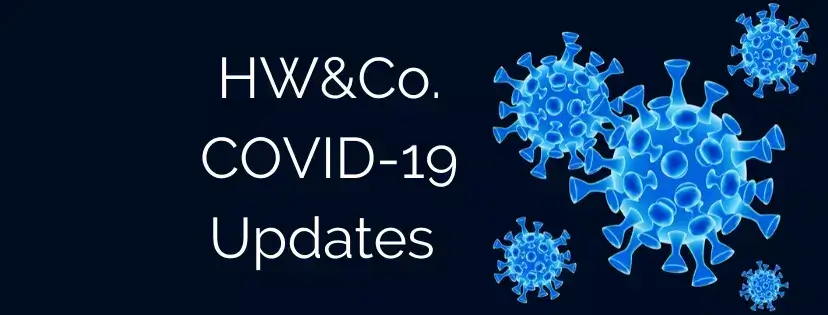 The Coronavirus Aid, Relief, and Economic Security Act (CARES Act) was passed and signed into law on March 27th, 2020 in response to the impact of the COVID-19 pandemic. The CARES Act provided substantial funding in the form of Paycheck Protection Program (PPP) loans, Provider Relief Fund grants, and Coronavirus Relief Fund grants to for-profit and not-for-profits alike. Existing federal programs also received additional funding from The CARES Act that continues to trickle down to state and local governments and others. Recipients continue to assess the ever-developing requirements of these emergency monies as much uncertainty remains. Though there is still much to understand, a few things have become a bit clearer as follows:
The Coronavirus Aid, Relief, and Economic Security Act (CARES Act) was passed and signed into law on March 27th, 2020 in response to the impact of the COVID-19 pandemic. The CARES Act provided substantial funding in the form of Paycheck Protection Program (PPP) loans, Provider Relief Fund grants, and Coronavirus Relief Fund grants to for-profit and not-for-profits alike. Existing federal programs also received additional funding from The CARES Act that continues to trickle down to state and local governments and others. Recipients continue to assess the ever-developing requirements of these emergency monies as much uncertainty remains. Though there is still much to understand, a few things have become a bit clearer as follows:
Business entities (for-profit entities) receiving Provider Relief Fund monies may be subject to Single Audit requirements
- While the Single Audit requirement typically applies to not-for-profit organizations receiving federal awards, recipients of funds from the Provider Relief Fund program currently extend the Single Audit requirement to for-profit entities. The threshold of federal funds is $750,000 and therefore, for-profit and not-for-profit entities that have total federal awards (that includes the Provider Relief Funds, PPP loans are not considered federal awards) of $750,000 or more is currently subject to the Single Audit requirements. We expect much more guidance and information to come out related to this in the coming months.
No “double-dipping”! Expenses supporting PPP loan forgiveness cannot be applied to other existing federal awards
- A memo released by The Office of Management and Budget (OMB) titled “OMB Memo M-20-26” clarified a concept called “double-dipping”. On its surface, the concept makes sense – that the same expenses submitted to support government grants or funding under one federal program should not be charged against another to avoid government monies supporting the same cost twice. However, the OMB memo raised concerns about a specific scenario – one where costs used to support forgiveness under a PPP loan could then not be charged against other federal awards (or vice versa). This may present challenges for some not-for-profit organizations historically claiming payroll costs against existing federal programs and therefore may not have enough costs to get partial or all PPP loan forgiveness. Organizations that fall into this scenario should review their costs and try and determine now how they can maximize their PPP loan forgiveness. One approach is to discuss with your lender any strategies they feel you may be able to follow because ultimately the lender needs to approve the loan forgiveness application.
Single Audit submission extensions for 2019 year-ends, but no extensions for 2020 year-end audits
- The “OMB Memo M-20-26” granted some year-ends subject to Single Audits in 2019 3-month and 6-month extensions to file their submissions. For organizations with June, July, August, and September 2019 year ends, Single Audit submission due dates have been extended for an additional 6 months. For organizations with October, November, and December 2019 year ends, Single Audit submission due dates have been extended for an additional 3 months. If organizations intend to use the additional time to file, they should maintain documentation of the reason for delaying the filing, however, no action is required by the organization to obtain approval for the extension of time.
If you need assistance or have any questions regarding these items, please contact your HW&Co. representative.

shea@hwco.com




